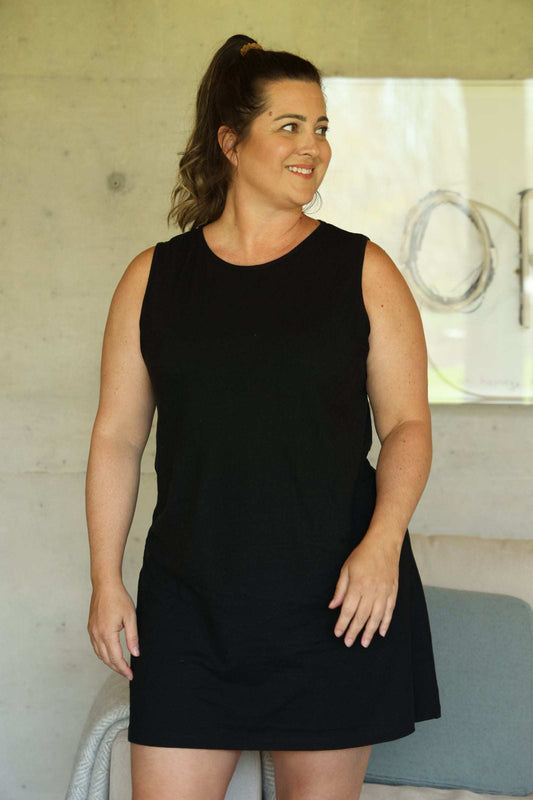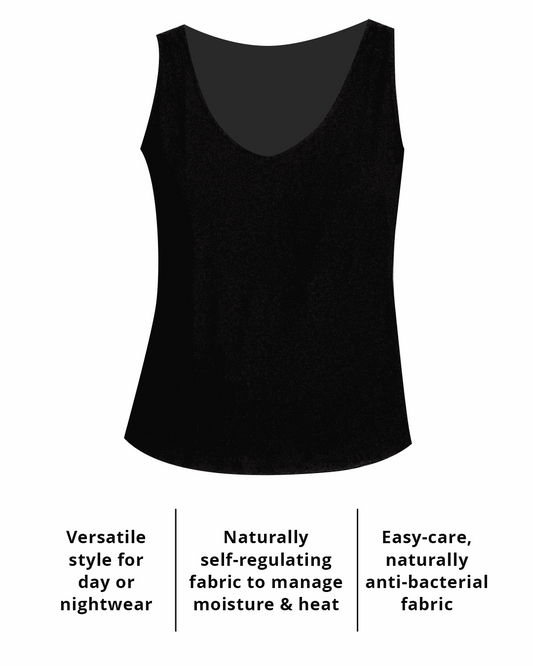
The Best Medicine for a Long and Healthy Life
Partager
When was the last time you had a good night’s sleep? If you’re in some stage of menopause, you may look fondly back on those nights when your head hit the pillow and the next thing you knew, it was morning. As we age and go through the “lovely” stages of menopause, sleep can feel more like a distant dream than reality.
If you brush off yet another bad night’s sleep by thinking “I’ll sleep when I’m dead,” you may reach that goal sooner than you had in mind.
I don’t mean to sound dramatic, but the latest research is showing that sleep is the secret ingredient to lead a long and healthy life. But sleep is difficult for many middle-aged women to achieve, thanks in part to menopause symptoms (such as insomnia and night sweats).
In Why We Sleep, Matthew Walker points out that research is showing that sleep is critical for our long-term physical and mental health. While we’ve all felt the immediate effects of a poor night’s sleep, long-term sleep deprivation significantly contributes to negative health effects such as obesity and type 2 diabetes and dementia.
Sleeping well is essential to good health:
While you sleep, your body is working away to prepare you for the following day, both physically and cognitively.
Physically:
- Weight control: Better able to manage your weight through appetite suppression and lack of cravings. Less chance for type 2 diabetes.
- Lower blood pressure: keeps your blood vessels clean and clear
- More energy: a good sleep leads to prolonged physical energy during the day so you can accomplish more of what you want to
- Better muscle performance
- better coronary health
In addition to helping us stay fit and trim, and help maintain low blood pressure, from a mental perspective, sleep helps you
Cognitively:
- make better decisions
- stay calm under pressure
- be happy and in a better mood
- and in the long-term ward off dementia
Of course, even if you were to ensure that you get a good quality sleep every night, sleep is not a magic bullet. You still have to eat healthy food and get plenty of exercise. But a lack of sleep makes it more difficult to achieve these other healthy life choices. In fact, a lack of sleep will have you craving simple carbohydrates (junk food), and leave you unable to feel full after a meal prompting more food intake.
On top of that, a lack of sleep produces more stress hormones like cortisol, which contributes to the “rubber tire” effect around your middle.
What is a “good quality” sleep?
The recommended amount of sleep doesn’t change throughout your adult years, it just seems to get harder to achieve as you age. You still need 7-9 hours, veering towards 9 hours of quality sleep per night.
Ideally, what you want to achieve is a healthy blend of deep sleep, light sleep and REM sleep.
Each of these stages of sleep serves a specific purpose in preparing you for the following day by rebuilding your cells, categorizing your memories, and cleaning your blood vessels. Light sleep usually takes up about 50% of your sleep stages, with deep sleep, REM, and being awake taking up the rest. You may not remember waking up during the night, but it is very common and as long as you easily fall back to sleep, it should not be disruptive to your night.
As we age we tend to get less deep sleep, but don’t let that stop you from trying to get more. Deep sleep is critical to better cognitive health and healthy blood vessels.
Who knew sleep was so important to our health and well-being?
No one said it would be easy, but if a happy, healthy life is your goal, start by focusing on your sleep.
So, if you’re in menopause and suffering from insomnia, night sweats, anxiety, and other challenges that are making a good sleep impossible, what do you do?
Don’t worry! We’ve got you covered. Below is a list of our best articles on sleep - from why your symptoms are keeping you up to how to get your sleep back and the resources you need to help you sleep better.
5 Tips for Better Sleep Using Fabric
Expert Tips for Midlife Women Facing Sleep Challenges
5 Tips For Better Sleeping When You Suffer From Night Sweats
5 Tips To Relieve Menopause-Related Night Sweats Fast




